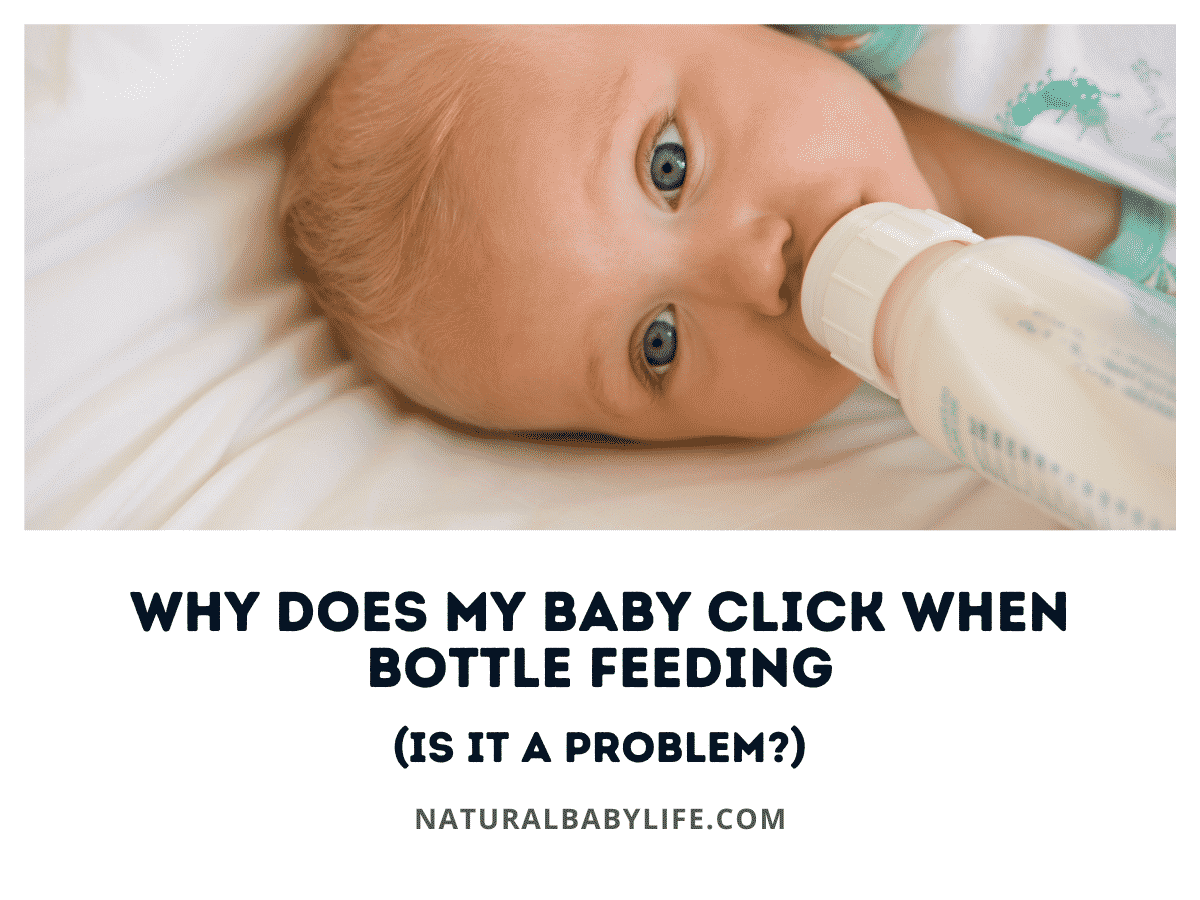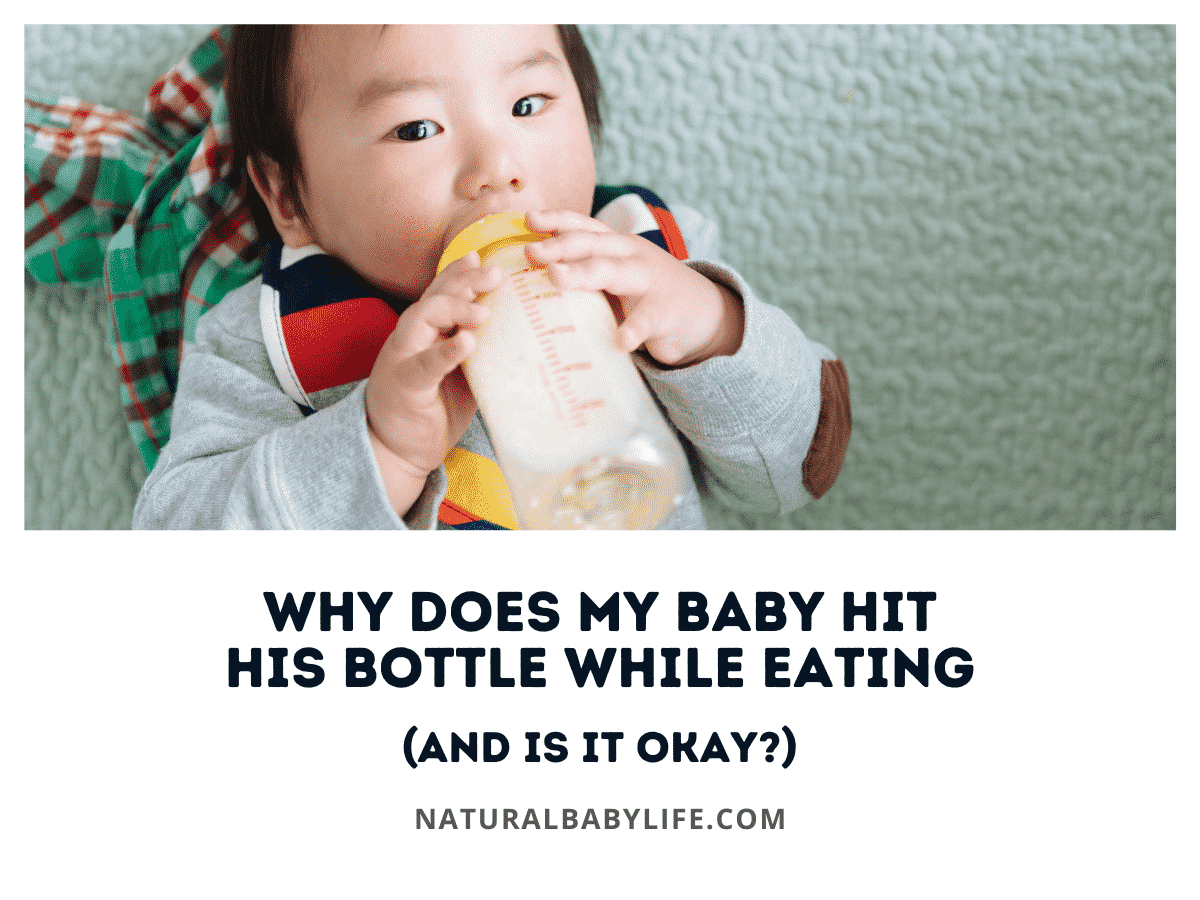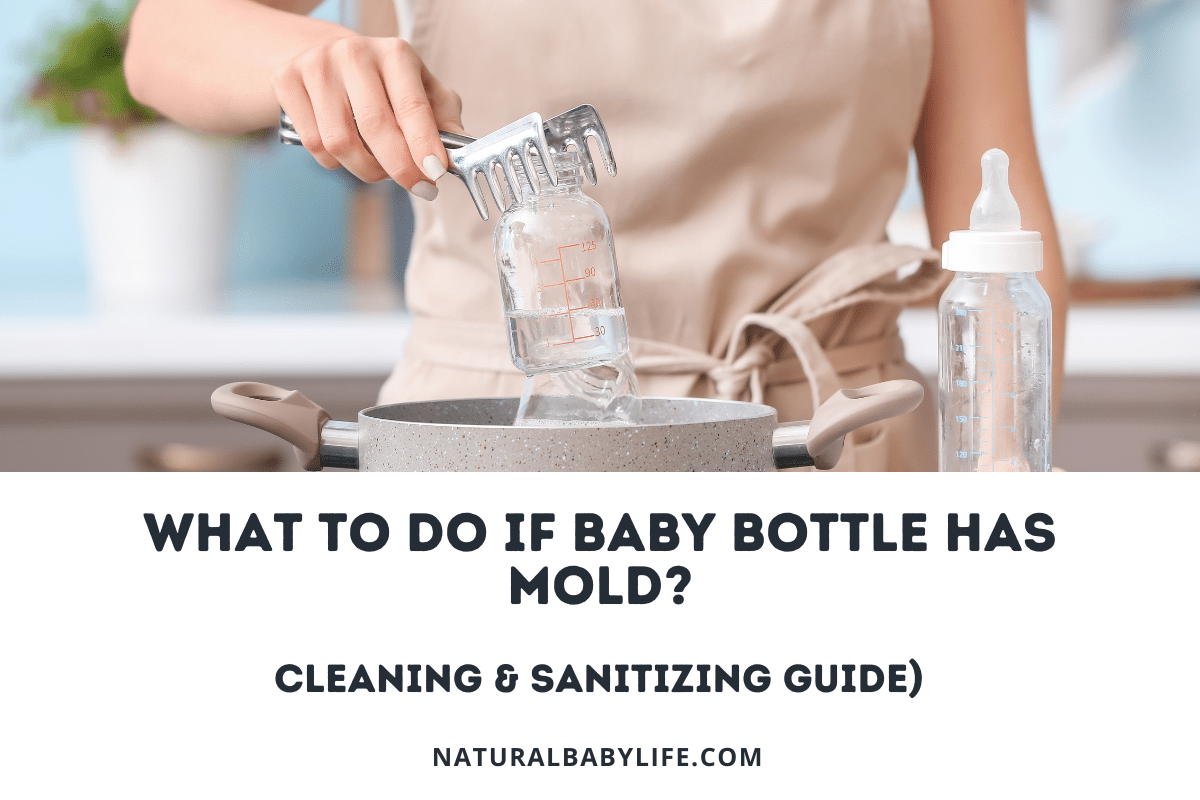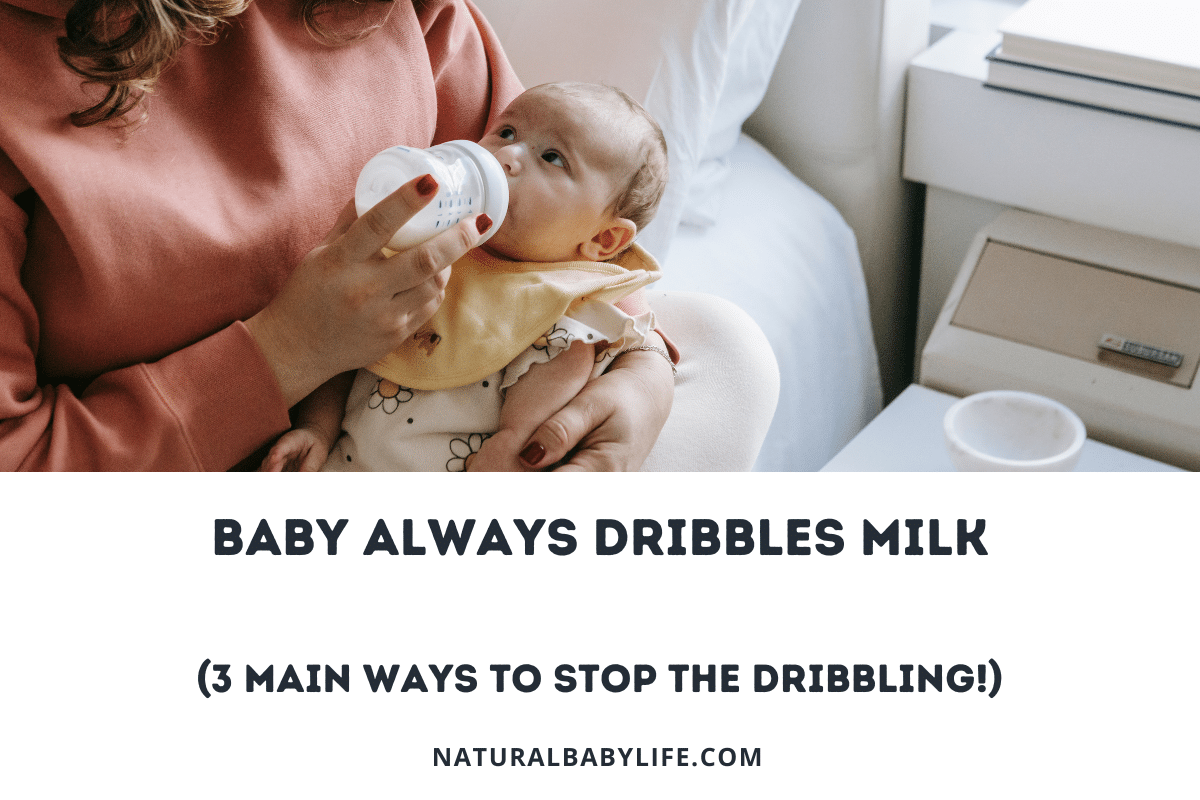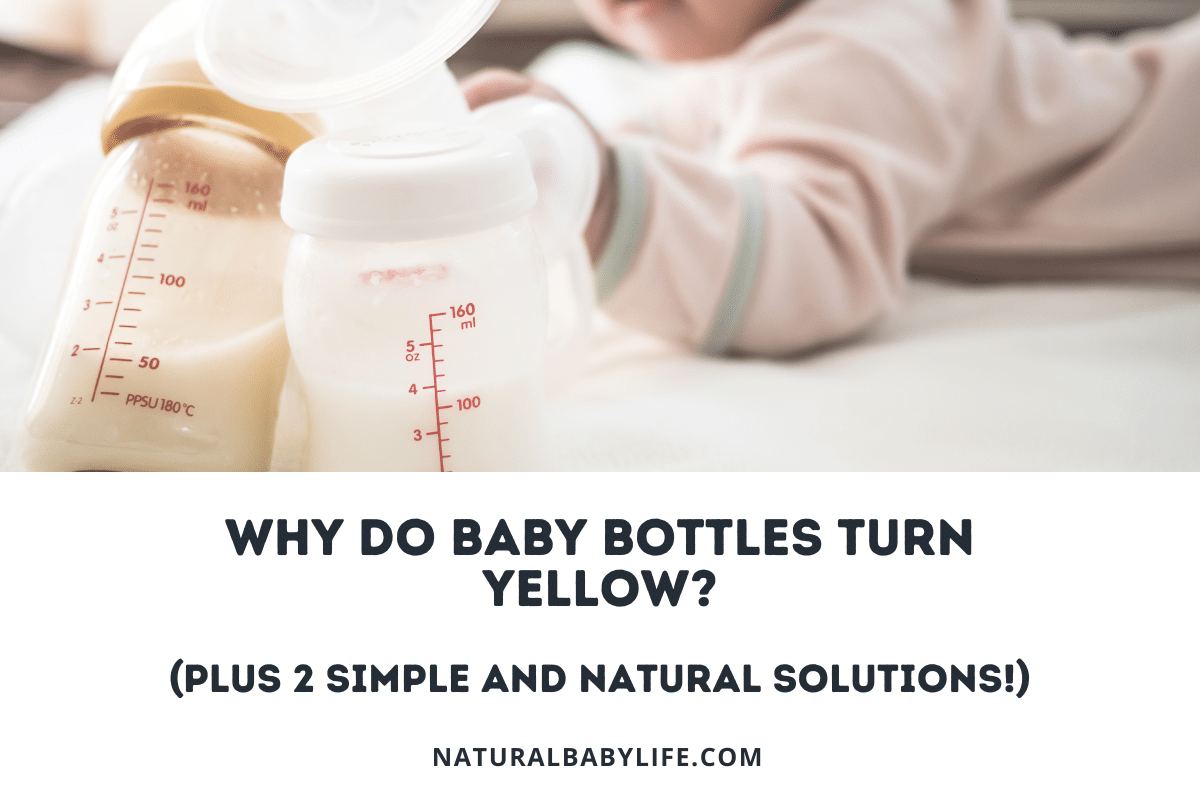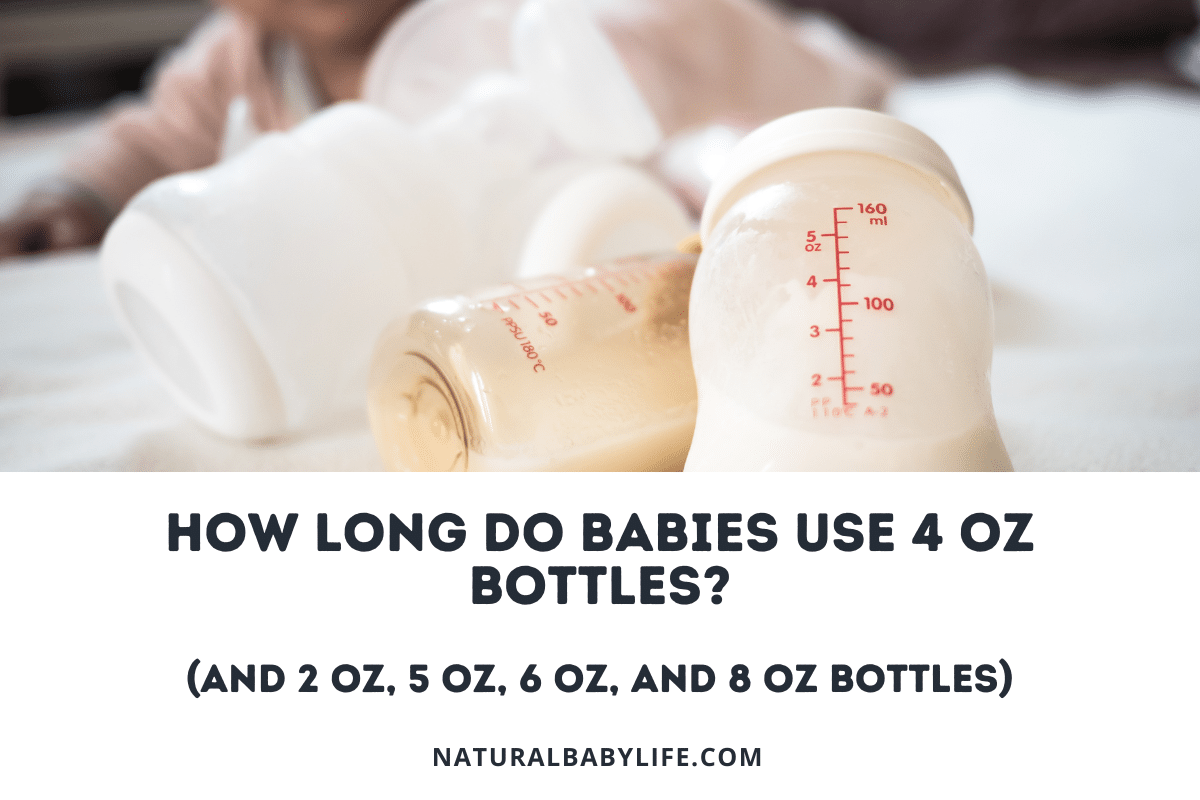When things are going well, feeding your baby can be a peaceful, straightforward process. But what happens when you hear clicking sounds or noises during bottle feeding? Is it a sign something is wrong?
Clicking sounds while bottle-feeding are caused by a loss of suction. The clicks may be attributed to milk flow, hunger level, or a tongue-tie. Most clicks can be remedied by tracking your baby’s feeding times and ensuring both the position and nipple are best for your little one. If that doesn’t help, you might have your baby evaluated by a pediatrician or lactation consultant.
If you’ve ever wondered why does my baby click when bottle feeding, keep reading. Knowing the cause could help you determine what to do to stop it.
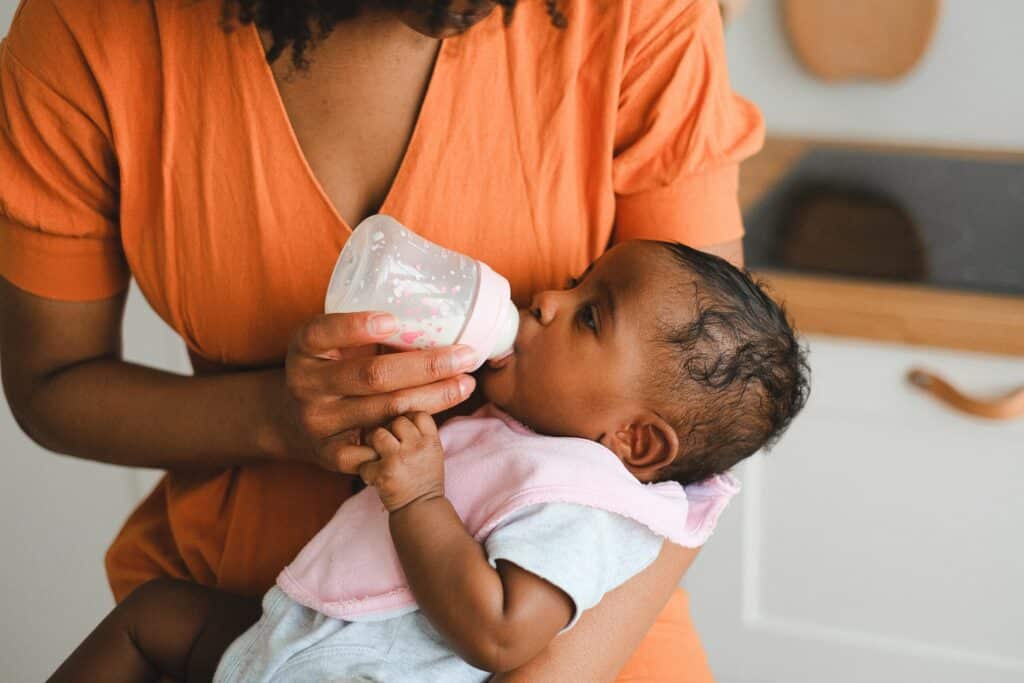
Table of Contents
Why does my baby click when bottle feeding?
Parents researching clicking noises will come across numerous resources regarding clicking that is associated with breastfeeding, but why would your bottle-fed baby be making clicking sounds while feeding?
While it can be hard to imagine what a clicking baby sounds like, if you’ve heard it, you know what I’m talking about. It doesn’t sound like when an adult clicks or pops their tongue, but you might recognize it as a much lighter, more muted version of the sound. The sound may or may not be accompanied by your baby leaking milk or formula out of their mouth.
In most cases, your baby will make clicking sounds while bottle feeding because they’re losing suction. This may be due to:
- Strong milk flow – The milk or formula flow might be too strong due to a bottle nipple opening that’s too large or a feeding position that isn’t allowing your baby to swallow before their mouth is filled again.
- Lack of hunger – If your baby is holding the bottle and chewing on the nipple instead of actually eating, they may be feeding for comfort rather than hunger.
- Tongue-tie – A tongue-tie happens when the tissue connecting your baby’s tongue to the floor of their mouth is too short, impeding your baby’s tongue motion. It may require medical intervention, but it’s a minor procedure that many babies have.
Some other causes for a baby clicking while bottle feeding are:
- Congestion – Nasal congestion can be uncomfortable for a baby, especially while they’re eating. Babies can only breathe through their nose until about 3 to 4 months old. This allows them to breathe and nurse at the same time, but if their nose is congested, they will likely have trouble feeding since their nasal passage is blocked. This may cause them to make a clicking sound while they try to drink.
- Teething – When a baby is teething, their mouth is going to be sore. One way they might try to relieve the pressure or pain is by unlatching or breaking the suction of the bottle nipple, causing a clicking sound. This may happen when your baby has new teeth as well since they’re still getting used to the feeling of bottle feeding with teeth.
- Ear infection – When babies have an ear infection, they usually have ear pain that may become more painful while lying down and drinking from a bottle. You may notice them not latching on to the bottle properly or breaking the suction to relieve their pain. If your baby has an ear infection, they will likely have other symptoms such as tugging or pulling on their ear.
- Thrush – Oral thrush is a yeast infection that’s common for babies under 6 months old. Although thrush can be easily treated by a medical professional, it typically leads to a sore and itchy mouth for your baby. These symptoms may cause them discomfort while they’re bottle feeding.
- Cleft palate and lip – Cleft palate and lip are birth defects that can happen when the tissue of the baby’s lip or mouth doesn’t form properly before birth. Babies with a cleft palate and cleft lip often have problems with feeding and latching, which can lead to sounds during bottle feeding. Cleft palate and lip can be diagnosed from an ultrasound, but are sometimes diagnosed after birth as well.
For reasons your baby is dribbling milk while feeding, check out this resource.

Does a clicking sound mean my baby is tongue-tied?
If it’s your first time hearing the term tongue-tie, you are probably wondering what that is. The medical term for tongue-tie is ankyloglossia.
Babies with a tongue-tie have a problem latching or maintaining a latch while feeding because of an abnormality in the lingual frenulum. In this case, the lingual frenulum (the bit of tissue connecting the tongue to the bottom of the mouth) is either shorter or tighter than normal and limits the tongue’s movement.
Tongue-ties are more likely to affect boys than girls, and will likely require a professional such as a lactation consultant or ENT to diagnose.
While a clicking sound does not necessarily mean your baby has a tongue-tie, you should consider having your little one checked if the sound persists despite attempts to resolve any feeding issues (tips below!).
How to fix clicking while bottle feeding
Before you can begin to consider ways to stop your baby from clicking, it’s important to identify the reasons behind the sound.
Is your baby comfort feeding? Is the milk/formula coming out too fast for them? How are they positioned while being fed? What stage are they at developmentally? Are they teething? It may take some trial and error to figure out what’s causing your baby to click while bottle feeding.
The best ways to fix clicking while bottle-feeding are:
- Proper feeding position
- Change bottle nipple size
- Track feeding time
- Evaluate for tongue-tie
- Wait it out
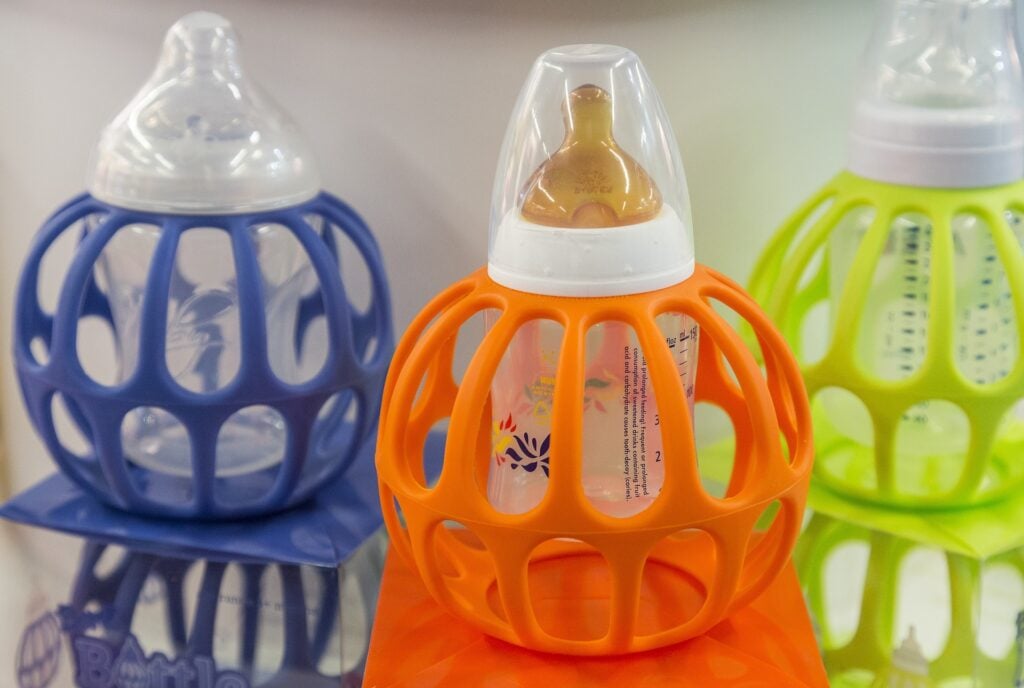
Proper feeding position
Your baby may be losing suction due to their feeding position. A position that restricts their ability to swallow milk or formula as it flows out of the bottle can cause your baby to click while feeding.
The ideal position for bottle-feeding is to hold your baby at a 45-degree angle with the bottle tilted allowing the milk or formula to completely fill the nipple (this will help reduce the amount of air swallowed). This will keep your baby from choking and gagging on the milk or formula, which is what leads to the clicking.
When feeding your baby, it’s important to find a comfortable position for both you and your baby.
Change bottle nipple size
If the milk or formula is flowing too fast for the baby, you will notice your baby breaking the suction and the milk escaping out of the side of their mouth.
In this case, changing the nipple size of the bottle will be beneficial. You want to go down in size so that your baby will have better control of their swallowing.
Track feeding time
Understandably, one of the first things that parents turn to when their baby is crying or fussy is a bottle. However, if your baby isn’t due for a bottle yet, they may not be hungry.
If your baby is sucking on the bottle instead of trying to feed, this is called comfort feeding. Basically, your baby is using the bottle as a pacifier. If you suspect your baby is comfort feeding, try tracking their feeding to avoid giving them a bottle before they’re ready.
You may also notice there is frequent loss of suction and milk dribble in this case.
Evaluate for tongue-tie
As mentioned earlier, tongue-tie could be a cause for clicking but it may be challenging for a non-professional to detect the tongue-tie.
Your pediatrician or a lactation consultant can examine your baby. If your baby has a tongue-tie, a procedure called frenotomy can be performed in-office to stop the clicking. By getting your baby’s tongue-tie issue resolved or fixed you can help improve your baby’s suction and therefore stop the click.
The procedure itself is rather straightforward. The doctor will use a sterile instrument, usually a pair of scissors, to cut or divide the frenulum (the tissue that is connecting the tongue to the floor of the mouth) to give your baby’s tongue more range of motion. There is also another method where the frenulum is divided by a laser, which typically takes place in a pediatric dentist’s office.
If you’re concerned about subjecting your little baby to a medical procedure, watch this video. Your baby may cry, but the entire procedure only takes a few seconds.
Afterwards, your baby should have better control of their tongue and better suction and they can feed immediately after the procedure is finished. Studies have shown that babies who have a frenotomy have improved short-term and long-term symptoms.
Wait it out
As parents, when we see our child struggling, doing nothing is one of the most difficult things. Trying to wait it out when you notice a change could be a real test of patience and resilience.
When it comes to clicking, if your baby is experiencing a developmental change (such as teething) or is sick, the click could be temporary and you just have to wait it out.
If your baby is teething, their mouth is constantly sore. During this stage, they may be breaking the suction on the bottle to get relief from a sore mouth or because they’re not accustomed to this new sensation. Once your baby gets used to the growing teeth and the soreness is no longer a factor, they will return to their normal suction.
If your baby is ill and in pain, it could throw off or change the way they suck and swallow, especially if their nose is clogged. They should return to their normal suction once they’re feeling better. No matter what is causing the clicking sound during bottle feeding, always reach out to your pediatrician if you have any concerns or questions.

